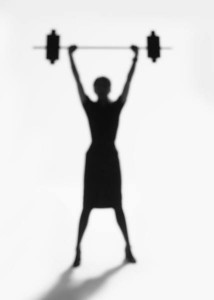 I was reading an interview in Time with David McCullough (the Pulitzer Prize-winning historian, if the name doesn’t ring a bell), and this question caught my attention:
I was reading an interview in Time with David McCullough (the Pulitzer Prize-winning historian, if the name doesn’t ring a bell), and this question caught my attention:
Q: We don’t write letters on paper anymore. How will this affect the study of history?
The loss of people writing–writing a composition, a letter or a report–is not just the loss for the record. It’s the loss of the process of working your thoughts out on paper, of having an idea that you would never have had if you weren’t [writing]. And that’s a handicap. People [I research] were writing letters every day. That was calisthenics for the brain.
Calisthenics for the brain. Isn’t that a fantastic image?
Because it’s true. Just like my body feels sluggish if I don’t at least get out for a walk with the dog every day, so does my brain on days it doesn’t do much.
Granted, every brain deserves a lazy Sunday curled up with a book or settled on the couch watching sports or a cheesy movie. But … you can’t forget that it’s a muscle that needs to be used, too.
Lots of people realize this already. They do crossword puzzles or play sudoku online. They read everything they can get their hands on, or watch documentaries about obscure subjects on television. They take classes at the community college and visit museums, and learn about new technology on the internet.
I mean, not everybody turns into a couch potato watching reality-tv after dinner every night, right?
But, I love McCullough’s point about the importance of working things out on paper, and how it can lead to ideas you might not have had otherwise.
There’s something to be said for the simple hand-brain coordination of moving a pen across a page. Think of all the notes you took in classes at school when the teacher’s lecture went in one ear, down past the shoulder and out the hand onto the notebook without ever pausing in the brain. And then, haven’t you ever had the experience of doodling, jotting down random, crazy, silly thoughts and then looked at your page and realized you’d just solved a problem, or done something brilliant without consciously thinking about it?
As much as I love typing on a keyboard these days–if only because it’s legible which you can’t exactly say about my handwriting–it’s still a different kind of “writing” than the kind you do with a pen. No matter how good a touch-typist you are. You can’t doodle in a word-processing program, after all.
Mind-mapping is all the rage these days, too–putting all your thoughts and ideas about a project in one place in a seemingly random order so that you can line things up and visually SEE those connections. Everybody’s brain works differently. Some of us are visual thinkers who need visual aids to understand things. Some learn best by hearing, some by reading … but ultimately it comes back to getting the ideas on our heads down on paper.
Whether that paper is made from tree pulp or pixels on a computer screen doesn’t matter, not really. It might matter to historians down the ages who are using Windows 2703-B on their brain-embedded computers and can’t access our lame attempts at digital “permanence” any more, but we can’t be concerned with them. For the moment, what matters is that we not only THINK but that we take our responsibility to record it in some fashion seriously.
Because our brains deserve the workout. Calisthenics for the brain. And the best part? Unlike heading to the gym for an hour of sweat and calorie-burning, at the end of an hour of writing–of drawing connections and getting words and thoughts on paper–you’ve got something solid to show for it.
Now, go and exercise that brain of yours. Write something!
(And, as an interesting side note, I saw this post linked on Twitter today–about the differences between writing by hand or writing by keyboard, which I thought particularly interesting as I mulled over this blog post of my own.)
What do YOU think?
